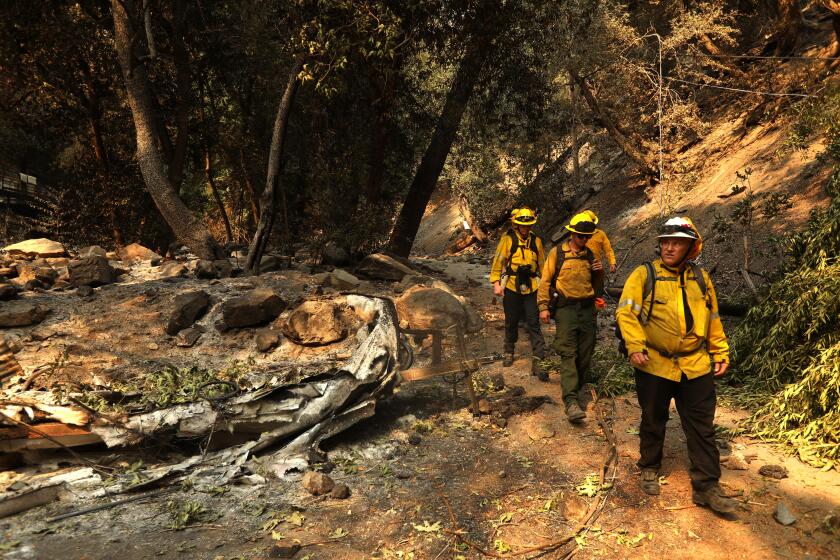Mammoth got so much snow this winter it called in the National Guard for help

Snowplows have struggled to keep up with record falls all winter, after January proved the snowiest on record. By February, parking lots and streets overflowed with mountains of snow. (March 24, 2017) (Sign up for our free video newsletter here http
Hey, Mammoth Lakes, add this group shot of the National Guard to your winter scrapbook.
Burdened with removing the 44 feet of snow that had fallen this season, the village of 8,200 called in the National Guard earlier this month to help cart 4,000 tons of it away. The five-day offensive, involving 17 air and Army troops, will be just one of the many memories in this winter of monster, record-setting snows.
The SOS — shovel our snow — was issued after the village and Mono County declared a state of emergency to seek help in handling the piles that lined homes and streets. A request for snow removal assistance was passed along to the state Office of Emergency Services (Cal OES), which then called in the Guard.
Though not unheard of, it’s highly unusual for the National Guard to race to rescue towns socked in by snow.
Capt. Will Martin, deputy director of public affairs, said that the crews are more familiar with fire emergencies and that snow-related calls usually involve search-and-rescue missions.
“No one can recall the last time they were called in for something like this,” he said Thursday.
The Guard convoyed 10 heavy trucks to Mammoth Lakes, including several Army M1157 10-ton dump trucks, and one HEMTT wrecker, a Mad Max-style eight-wheel, diesel-powered 10-ton tactical truck.
“The locals were very appreciative,” Martin said.
Snowplows have struggled to keep up with record falls all winter, after January proved the snowiest on record. By February, parking lots and streets overflowed with mountains of snow.
The space crunch got so severe that the Eastern Sierra town even ended up creating a “Snow Pit,” north of California 203, for the surplus accumulation. In February, workers were making up to $100 an hour in the endless quest to keep shops open and houses accessible.
Though substantial, the season total of 533 inches, one-third better than average, is still short of the 668-inch record set in 2010-11.
ALSO
What’s new in ski resorts in California and the West
Your chance to take a rare peek inside Southern California’s flower farms
Think you have the guts to tackle back-country skiing areas? These spots might make you think twice
Sign up for The Wild
We’ll help you find the best places to hike, bike and run, as well as the perfect silent spots for meditation and yoga.
You may occasionally receive promotional content from the Los Angeles Times.




